Trent Alexander-Arnold has been the best right back in the world for quite some time now.
Trent Alexander-Arnold has long been hailed as the best right-back in world football. A generational talent, a Champions League winner, and Liverpool’s vice-captain—he was expected to spend his prime years at Anfield. So, how did one of the Premier League’s most valuable assets slip through Liverpool’s fingers?
That’s the question many Liverpool fans are now asking: why did Liverpool wait until the final stages of Trent Alexander-Arnold’s contract before making a decision on his future? In today’s football world, such indecision can cost a club dearly—and in this case, it arguably has
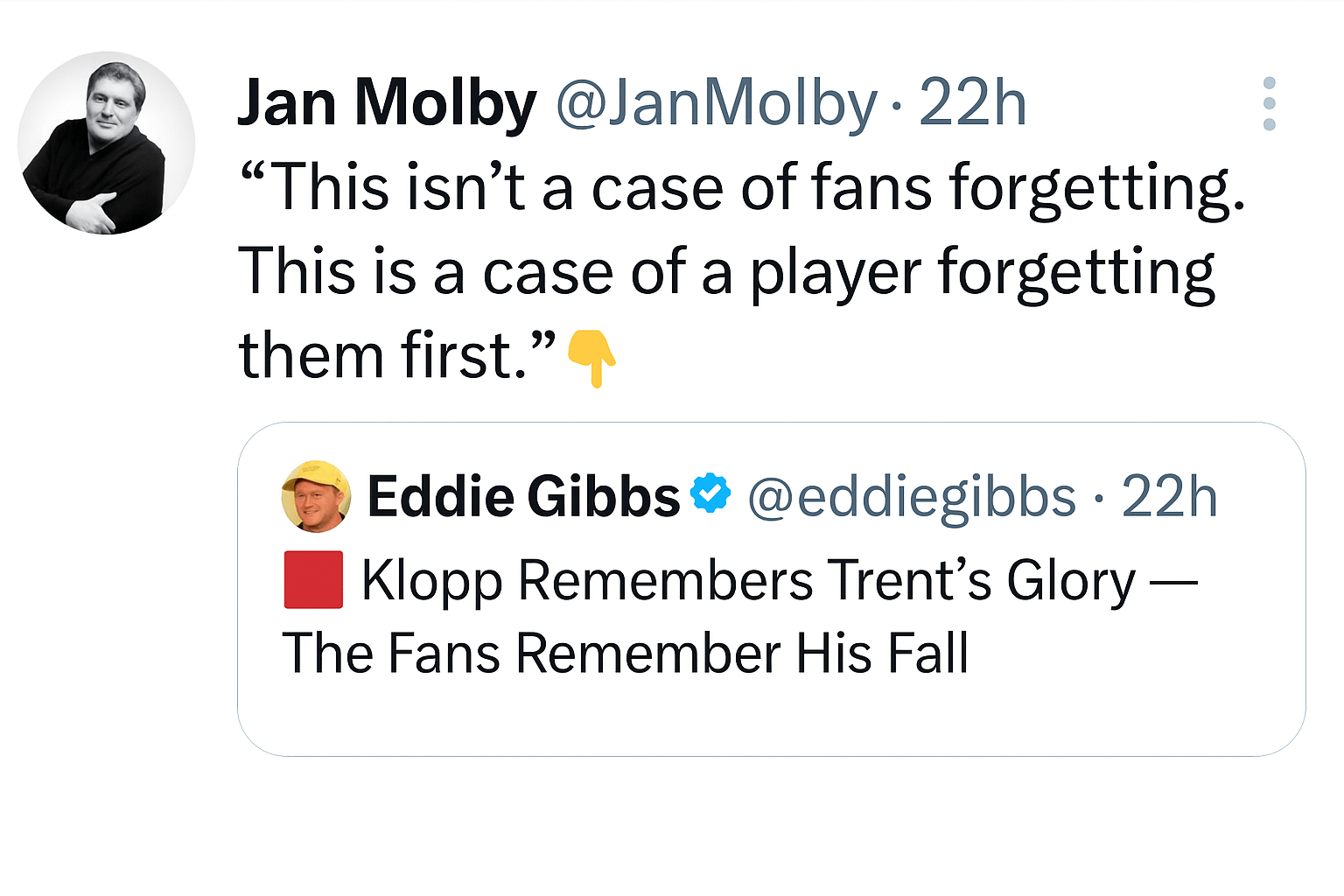
Failure to Act Early: A Costly Oversight by Liverpool
In the Premier League and across Europe, it is now standard practice for clubs to initiate contract extension talks two years before a player’s deal expires. This proactive approach protects the club’s interests in several ways:
- It shows faith in key players.
- It avoids losing top talent on a free transfer.
- It gives the club time to scout quality replacements.
Yet, in the case of Trent Alexander-Arnold—Liverpool’s homegrown star, vice-captain, and arguably the best attacking full-back in modern football—those safeguards were ignored.
At just 26 years old, Trent is far from an aging player. He’s entering what many consider a footballer’s prime. So why the delay? Unlike cases involving aging stars like Virgil van Dijk (33) or Mohamed Salah (32), there was no justifiable reason to hesitate.
Somewhere at the top of the Liverpool hierarchy, a serious misjudgment occurred—and that mistake has now come back to haunt them.
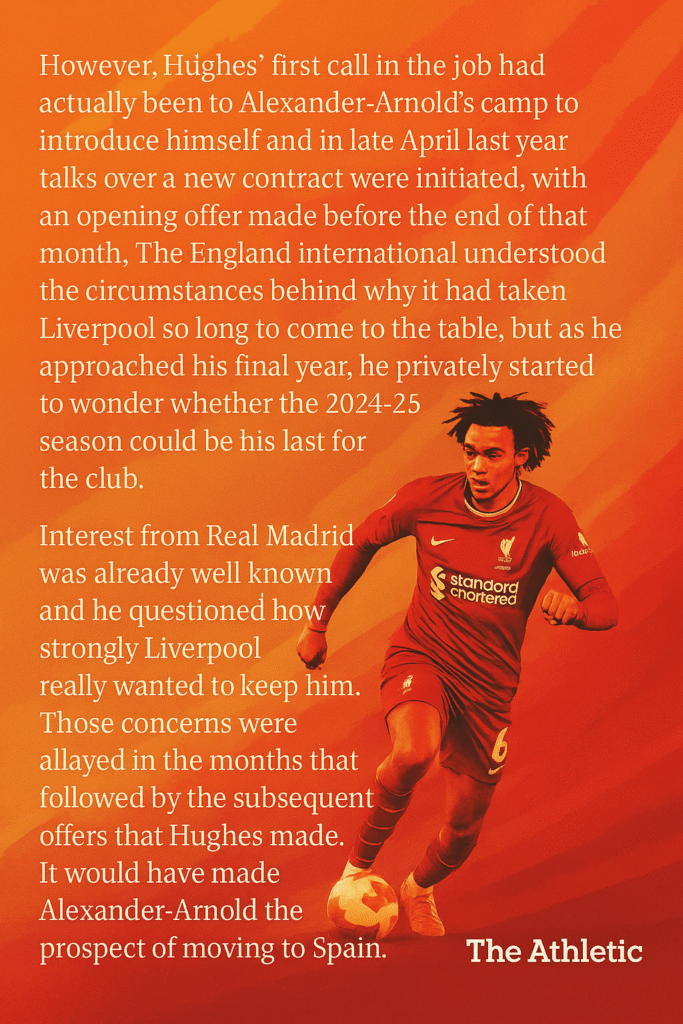
Liverpool Left Exposed: The Loophole They Created
For years, Liverpool fans assumed Trent Alexander-Arnold would follow in Steven Gerrard’s footsteps—an Anfield icon destined to stay loyal for life. That sense of comfort appears to have seeped into the club’s contract strategy, resulting in dangerous complacency.
By not securing a new deal earlier, Liverpool allowed uncertainty to creep into Trent’s mind. Naturally, the player began to question whether the club truly valued him. It’s simple: if you want to retain your best talent, you prove it with action, not assumptions.
Timely contract extensions are not just business—they are statements of intent.
Real Madrid Were Ready to Strike
In elite football, hesitation creates opportunity. And Real Madrid saw that opportunity from miles away.
Letting a world-class player like Trent Alexander-Arnold enter the final year of his contract without clarity was not just poor planning—it was an open invitation to Europe’s top clubs.
Did Liverpool’s board genuinely believe Trent wouldn’t attract interest as a free agent? If so, they miscalculated badly.
With Dani Carvajal battling long-term injury problems, Real Madrid urgently needed a successor at right-back. Trent Alexander-Arnold became their top target, and all they had to do was convince him that they valued him more than Liverpool did. That pitch wasn’t difficult—because actions speak louder than words.
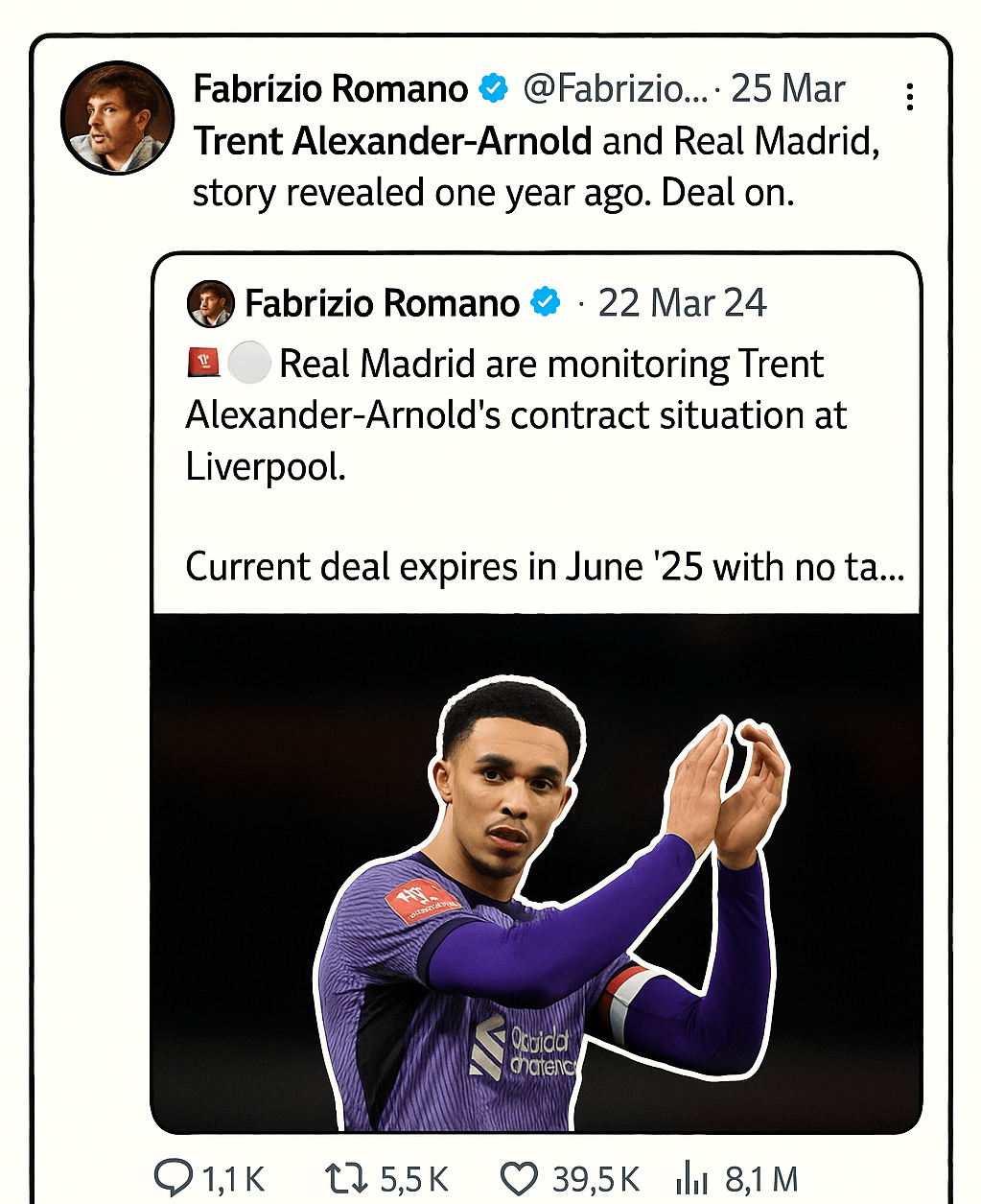
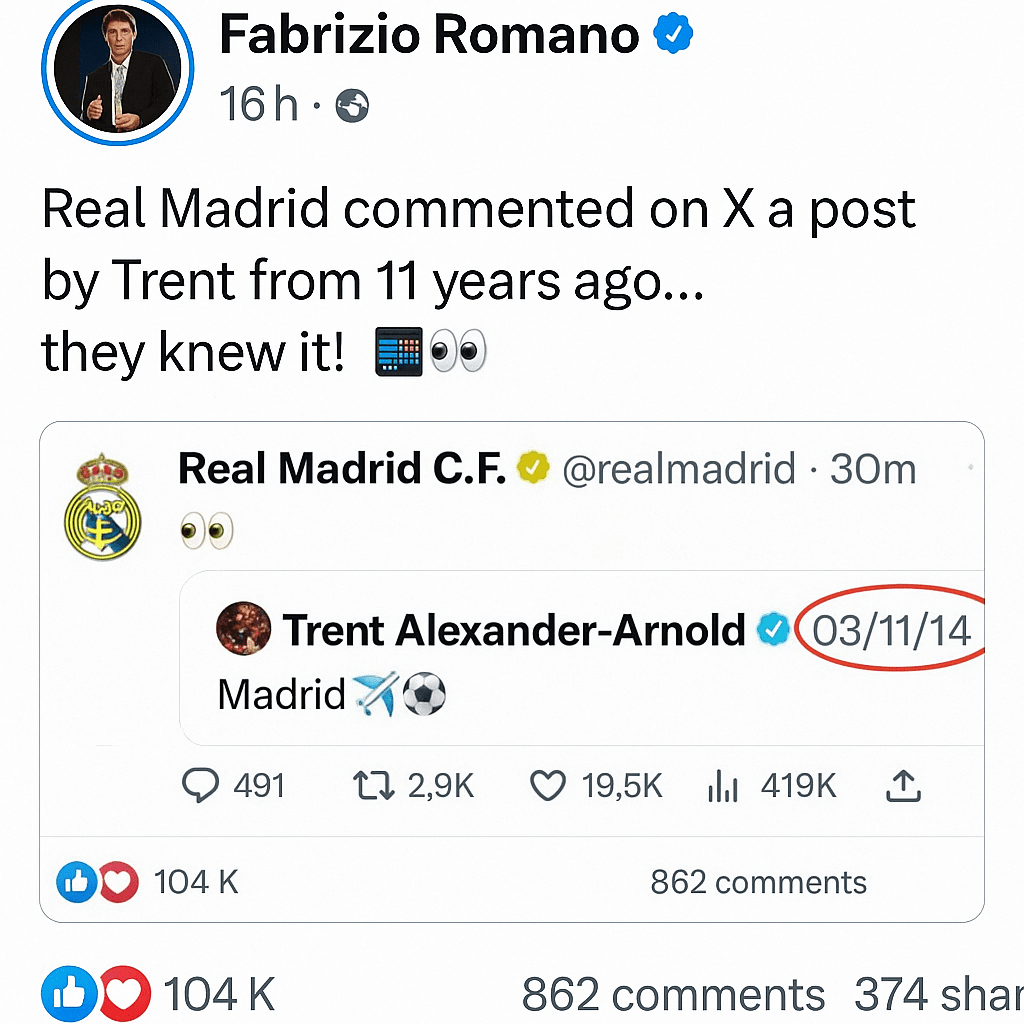
Real Madrid’s Masterclass in Contract Strategy
Real Madrid moved quickly, decisively, and convincingly.
They paid a modest £10 million fee and handed Trent a six-year contract, demonstrating just how much they believe in his ability to shape their future.
According to Fabrizio Romano, the Spanish giants have placed a €1 billion (£840 million) release clause in Trent’s contract—an unmistakable signal that he is now untouchable.
That’s how elite football clubs handle prized assets.
Madrid’s approach is a stark contrast to Liverpool’s indecision. Top European sides like Manchester City, Real Madrid, and Bayern Munich prioritize early contract renewals for a reason—they know the value of long-term planning.
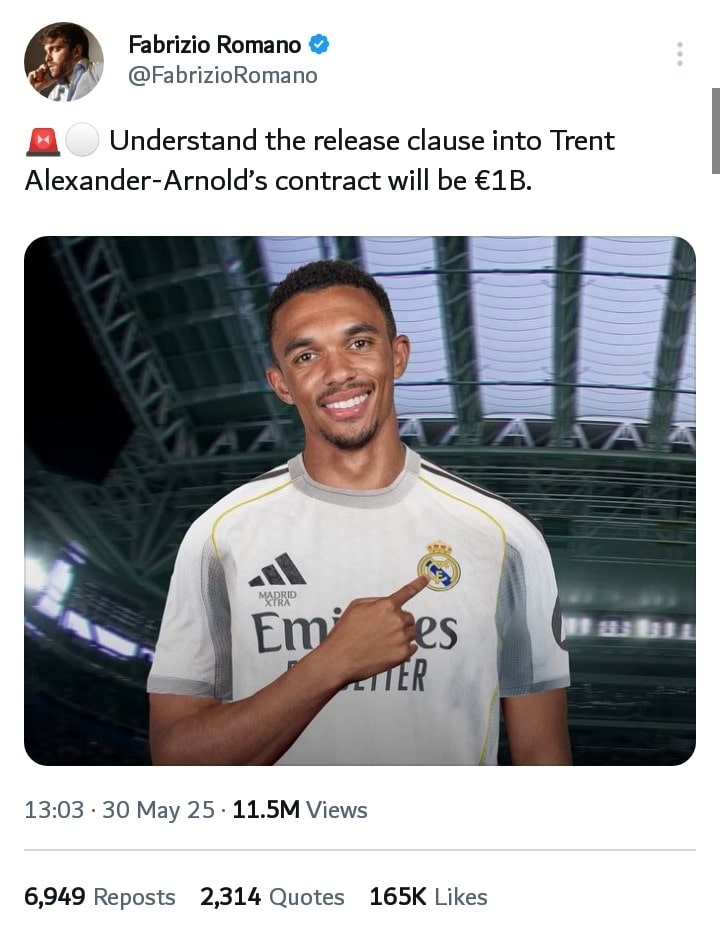
The New Era of Mega Contracts
Trent’s transfer to Real Madrid is part of a larger trend in European football. The world’s top clubs are locking down their brightest talents on long, iron-clad deals.
Recent examples include:
- Erling Haaland, whose new Manchester City deal reportedly runs until 2034.
- Lamine Yamal, who has already signed with Barcelona until 2031.
- William Saliba, whom Arsenal are desperate to extend—despite his current contract running until 2027—due to strong interest from Real Madrid.
Clubs no longer wait for a player’s contract to dwindle. They act years in advance. That’s how you avoid losing cornerstone players for peanuts—or worse, for free.
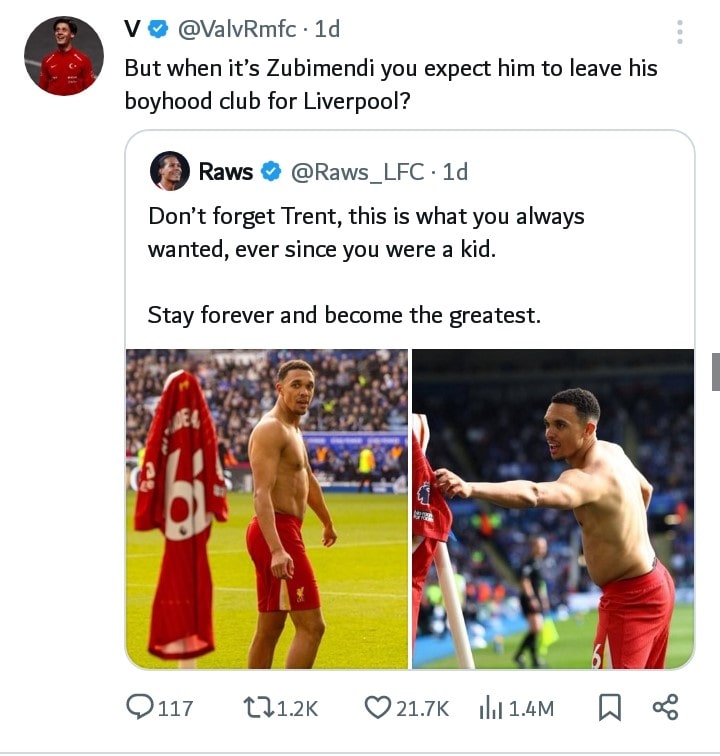
Final Thoughts: Who’s Accountable for Trent’s Exit?
There’s no getting around it—Trent Alexander-Arnold’s move to Real Madrid should never have happened this way. At the very least, Liverpool should have secured his signature early enough to either keep him or demand a market-value transfer fee—easily in the region of £80 million.
But through hesitation and poor timing, they lost one of the Premier League’s most influential full-backs for a fraction of his worth.
This isn’t just about one transfer. It’s about a deeper issue in contract management at the very top of Liverpool Football Club. There are reports that Ibrahima Konaté might walk out of Liverpool for free if he runs down his contract
And unless those mistakes are acknowledged and corrected, it may not be the last time a world-class player walks out of Anfield for far too little.


Leave a Reply